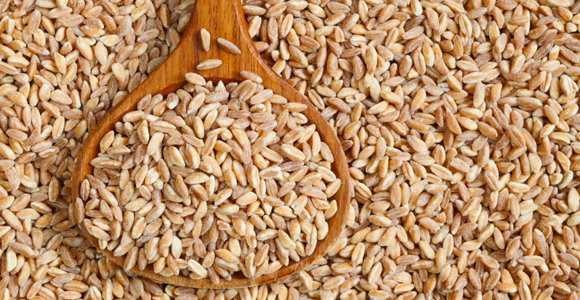Surely you've heard that fiber is essential for overall health. But the truth of the matter is that most of us simply aren't getting enough fiber in our diets. In fact, we're not just falling a little short on this powerful nutrient, we're missing the mark by more than half of the daily recommendation. According to the Institute of Medicine (IOM), we should be consuming 14 grams of dietary fiber per each 1,000 calories consumed a day. On average, most adults take in about 14 grams of fiber each day. This is a far cry from the 25 grams of dietary fiber women should get and 38 grams of dietary fiber men should get every day.
Many adults aren't eating enough fruits, vegetables, whole-grains, nuts and legumes. This unfortunate trend has led many individuals to turn to fiber supplements and foods with added fiber to meet the daily fiber requirements.
Why Is Fiber So Important?
Most people are aware that fiber is beneficial for digestive health by promoting regularity and normal bowel functioning. However, fiber does so much more than that. Fiber may reduce your risk of heart disease, diabetes, obesity and diseases of the colon. Fiber also plays a key role in promoting weight loss and maintaining a healthy weight by keeping you full for longer.
Different Types of Fiber Supplements
Inulin - It's a starch commonly found in a wide variety of plants, but the kind often used in supplements comes from chicory root extract. It can help ward off constipation, keep your digestive system working properly by promoting the growth of healthy intestinal bacteria, and lower your cholesterol and triglycerides.
Psyllium - This fiber is cultivated from the psyllium husk and psyllium seed of the Plantago ovata, a shrub found mainly in India. It provides bulk to your stools and is often used to treat constipation. You can find psyllium sold as a powder, liquid, wafers or pills. It's used in Metamucil as well as other brand names. Psyllium's soluble fiber, housed in the husks, may also reduce your cholesterol, keep blood sugar levels steady and has also been used to ease symptoms associated with irritable bowel syndrome (IBS) and hemorrhoids. Some studies have shown that psyllium reduces hunger.
Guar Gum - It comes from the guar plant, Cyamoposis tetragonolobus L., found mainly in Pakistan and India. It's used widely in foods as a thickener, stabilizer, emulsifier and binding agent. As a fiber supplement, it may be effective in relieving constipation and diarrhea, reducing blood levels of cholesterol and helping with blood sugar control in diabetics.
Methylcellulose - This semi-synthetic fiber comes from the cell walls of some plants and is used to treat constipation and promote digestive regularity. You'll see it sold under the brand name Citrucel.
Wheat Dextrin - It's often used to lower blood sugar levels, and may also help keep your digestive system regular, enhance vitamin and mineral absorption and lower lipid levels. Wheat dextrin is found in the supplement Benefiber.
Calcium Polycarbophil - This is a synthetic type of fiber commonly used to alleviate constipation but may also be used to ease symptoms of diarrhea or IBS. You'll most likely see it sold under the brand name Konsyl.
Beware of Potential Side Effects
If you increase your fiber intake too quickly, you'll likely experience gas, bloating, cramping and loose stools. To prevent or reduce some of the unpleasant side effects, start by taking a small amount at first and be sure to drink adequate amounts of fluids. Additionally, fiber supplements may cause interactions with certain prescription meds--be sure to discuss this with your physician.
The Bottom Line
There has been no evidence showing any adverse side effects of supplemental fiber, even with long-term use. But as always, you're better off getting your fiber from food rather than from supplements because fiber-rich foods will also supply vitamins, minerals and phytochemicals that have health benefits beyond those of fiber alone.
Kari Hartel, RD, LD is a Registered, Licensed Dietitian and freelance writer based out of St. Louis, MO. Kari is passionate about nutrition education and the prevention of chronic disease through a healthy diet and active lifestyle. Kari holds a Bachelor of Science in Dietetics from Southeast Missouri State University and is committed to helping people lead healthy lives. She completed a yearlong dietetic internship at OSF St. Francis Medical Center in Peoria, IL, where she worked with a multitude of clients and patients with complicated diagnoses. She planned, marketed, and implemented nutrition education programs and cooking demonstrations for the general public as well as for special populations, including patients with cancer, heart disease, diabetes, Alzheimer's disease, obesity, and school-aged children. If you would be interested in working with Kari one-on-one, sign-up for FitDay Dietitian.



